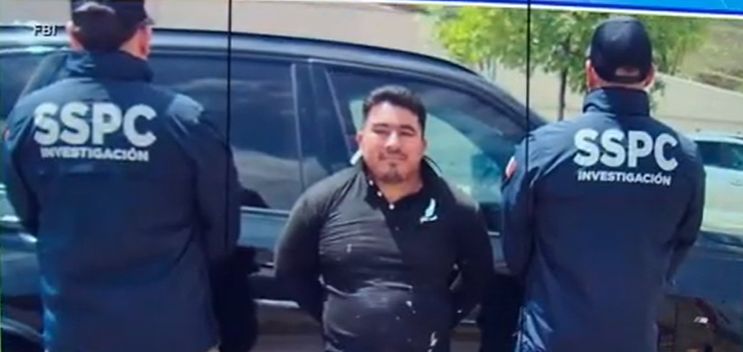There was a time when organized crime meant control — of streets, of cities, of governments forced into uneasy truces with the men who ruled them. But today’s criminal economy is not about control; it is about movement. Modern crime does not need to own territory; it only needs to move products — drugs, money, people, and weapons — across territories faster than governments can respond.
The challenge now is whether governments can outpace the speed at which these organizations adapt.
This is what made Francisco Javier Román-Bardales so valuable. His arrest on March 17, 2025, in Veracruz, Mexico, was hailed as a major law enforcement victory. Román-Bardales, a Salvadoran national and senior leader of MS-13, was apprehended on the Teocelo-Baxtla highway following intelligence operations by Mexican authorities. He faces charges in the United States, including conspiracy to provide and conceal material support to terrorists, narco-terrorism conspiracy, racketeering conspiracy, and alien smuggling conspiracy.
A federal arrest warrant was issued for him in September 2022 by the Eastern District of New York. Prior to his capture, he was among the FBI‘s Ten Most Wanted Fugitives.
His arrest was the culmination of a multi-agency operation involving the DEA, ICE, and Homeland Security Investigations, which had been tracking his activities across El Salvador, Guatemala, and Mexico for years. Intelligence revealed that Bardales’ smuggling network funneled cartel-linked criminals and Hezbollah operatives into the U.S., exploiting weak enforcement at the border.
Attorney General Pam Bondi lauded the arrest, stating, “As President Trump has made clear, cartels are terrorist groups, and this Department of Justice is devoted to destroying cartels and transnational gangs.” President Trump reinforced this, emphasizing the administration’s commitment to dismantling such networks to ensure national security.
Román-Bardales was not a cartel boss in the traditional sense. He was an architect of smuggling routes, a man whose real power came not from violence but from logistics — from his ability to turn the global criminal economy into a seamless operation, linking fentanyl labs, human trafficking routes, and terrorist financing pipelines into a single industry.
His most devastating export was fentanyl. The scale of the crisis cannot be overstated: over 110,000 Americans died from overdoses last year, more than the entire U.S. combat death toll in Vietnam (AP News). The Sinaloa and Jalisco New Generation Cartels, responsible for mass-producing fentanyl, were some of Bardales’ largest clients. Recent ICE operations uncovered a pipeline of fentanyl shipments hidden inside legal cargo arriving at U.S. ports.
The Significance of Román-Bardales
But Román-Bardales’ real significance was not in his drug empire. It was in his control of passage — and passage has become the most valuable commodity in the criminal world today. His operation was a pay-to-play system for anyone who could afford it. It was not just economic migrants seeking cartel protection. It was also figures linked to Hezbollah and Iranian-backed militias, who have long recognized that cartel-controlled smuggling routes are the easiest way to enter the United States undetected. Román-Bardales didn’t just profit from instability — he industrialized it.
His arrest does not change the fact that these smuggling routes remain operational. The infrastructure that allowed him to thrive remains intact. The sheer scale of the criminal economy he helped sustain means that enforcement actions, however dramatic, rarely have a lasting effect.
The recent transfer of over 2,000 Venezuelan gang members to El Salvador is a case in point. It has been presented as a show of force against organized crime, but in reality, it is a demonstration of how transnational criminal groups relocate rather than dissolve. Tren de Aragua, Venezuela’s most dominant gang, embedded itself in migration corridors, arms smuggling, and fentanyl distribution. Now, as Venezuela offloads its most notorious gang members, they are not being dismantled — they are being repositioned within a wider criminal ecosystem.
Román-Bardales was one of the architects of this system. His cartel-run smuggling operation ensured that when gang leaders were arrested, their financial networks and logistical pipelines remained untouched. When migration corridors became too risky, new ones are mapped out. This is what makes these organizations so resilient: they do not depend on individuals, but on the infrastructure that allows them to function.
The challenge now is whether governments can outpace the speed at which these organizations adapt. Tom Homan, now serving as the Executive Associate Director for Enforcement and Removal Operations (border czar), recently warned that legal rulings restricting deportations will only embolden criminal networks, making it even harder to dismantle smuggling operations like those run by Román-Bardales (Reuters). The criminal economy does not need to defeat law enforcement; it only needs to move faster than it.
Mexico’s decision to arrest Román-Bardales was a necessary step, but it does not alter the reality that his network is still functioning. The fentanyl shipments continue. The human smuggling operations remain in place. The economy of passage, of criminal logistics, is still very much alive. And as long as the systems that allowed Román-Bardales to thrive remain unchanged, his arrest is a headline, not a turning point.
READ MORE from Kevin Cohen:






![Trump's Admin Guts Another ‘Rogue Government Agency with Zero Accountability’ [WATCH]](https://www.right2024.com/wp-content/uploads/2025/03/Trumps-Admin-Guts-Another-‘Rogue-Government-Agency-with-Zero-Accountability-350x250.jpg)

![‘We All Owe Him (Elon) a Huge Debt of Gratitude’ [WATCH]](https://www.right2024.com/wp-content/uploads/2025/03/‘We-All-Owe-Him-Elon-a-Huge-Debt-of-Gratitude-350x250.jpg)

![NCAA Champ Salutes President Trump After ‘BIGGEST UPSET IN COLLEGE WRESTLING HISTORY’ [WATCH]](https://www.right2024.com/wp-content/uploads/2025/03/NCAA-Champ-Salutes-President-Trump-After-‘BIGGEST-UPSET-IN-COLLEGE-350x250.jpg)






